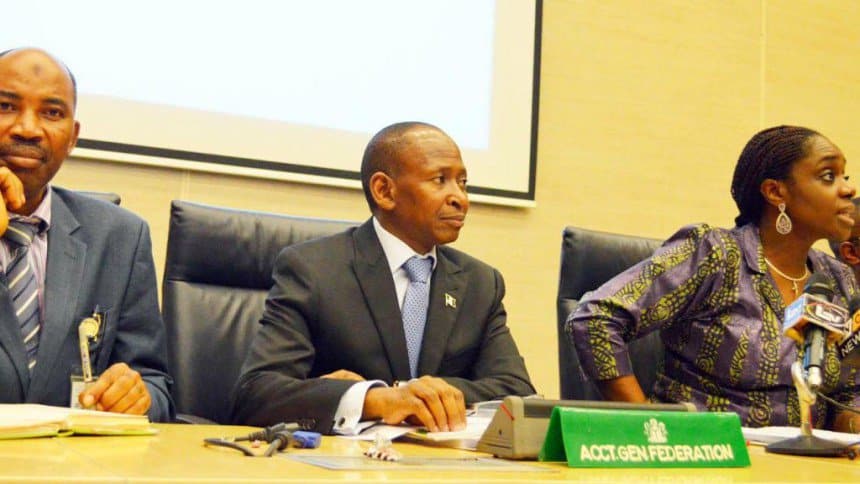Business
N80b Fraud: FAAC Meets Today As States Lament Delay In Revenue Sharing

There is bitter lamentation coming from states over the delay in the payment of salaries and capital expenditures, says the Federation Account and Allocation Committee.
Due to the development and other challenges in the activities of the ministry, FAAC said it will be holding a meeting today and Wednesday, May 25.
Naija News understands that the meeting was earlier scheduled for last week but was postponed following some developments.
Speaking on the agenda of the meeting, the Chairman of the Finance Commissioners Forum, David Olofu, and the Delta State Commissioner for Finance, Mr Fidelis Tilije, at separate interactions with newsmen on Monday revealed that the delay in holding the FAAC meeting had affected the activities of many states including payment of salaries and capital expenditures.
Naija News understands that FAAC, headed by the Minister of Finance, Budget and National Planning, and whose members include state Commissioners of Finance, states’ Accountants – General, Accountant – General of the Federation and the Permanent Secretary of the Federal Ministry of Finance meet every month to share revenues among the federal, state and local governments.
The ministry, however, could not meet last week as earlier planned, but the Federal Ministry of Finance, in a statement handed to newsmen days ago by its director of Home Finance, Stephen Okon, said it had been postponed indefinitely.
Though Okon did not explain in detail the main reason for the delay, it was, however, observed that the postponement of the meeting was due to certain circumstances that aroused a few days after the Economic and Financial Crimes Commission arrested the Accountant General of the Federation, Ahmed Idris, over an alleged N80 billion fraud.
Naija News reports that last week, Minister of Finance, Budget and National Planning, Zainab Ahmed, announced an indefinite suspension of Idris without pay.
However, when contacted, Olofu refused to utter a word about the arrest of the AGF.
But he mentioned that the delay in the sharing of this month’s allocations had affected most of the states of the federation of meeting their obligations.
He stated, “We are holding FAAC meeting on Tuesday and Wednesday, adding, ‘the delay has affected government activities.
“We have cash group plans at states, those cash group plans have not been met, so that has put in the cooler all plans of cash group and they have yet to be met including payment of salaries and capital expenditure because over 28 states in the country rely on federal allocation except Lagos and Rivers. In fact, no other states again, all other states depend on allocation,” Olofu told The PUNCH.
On his part, the Ekiti State Commissioner for Finance, Akin Oyebode, said the delay in the FAAC meeting brought to the fore the need to ensure fiscal federalism.
The commissioner lamented that the country is producing less crude than OPEC quota and is spending heavily on pipeline security and infrastructure.
Oyebode said, “Despite the huge spending on security, we are still unable to secure our pipelines, we can see heavy theft of crude oil, that should concern anyone.
“Despite significant investment in agriculture, agriculture is still growing at 3 per cent per annum. We should be asking questions about how do we invest in storage and irrigation which are the big drivers of productivity in agriculture, which is the mainstay of our economy. These are conversations we should be having.
“We should be having conversations about how do we decentralise our grid infrastructures, how do we put in the grids that we need to deepen and increase electricity generation. We need conversation around even fiscal federation – is the current revenue sharing formula the right one?
“Oil production has dropped to about 1.4 million barrels per day and we are spending hugely on subsidies. Not only are we earning less from crude, we are actually spending more to import refined products. At the end of the day, we are going to end up with the position that subsidy is simply not sustainable and something has to be done.
“I think, in the spirit of fiscal federalism, the states should be given the choice whether or not they want the subsidy for the refined products being sold in their state,” he added.
Meanwhile, the Delta State Government has said even though Federation Account Allocation A Committee (FAAC) does not hold its meeting, it will not affect Delta state’s finance.












